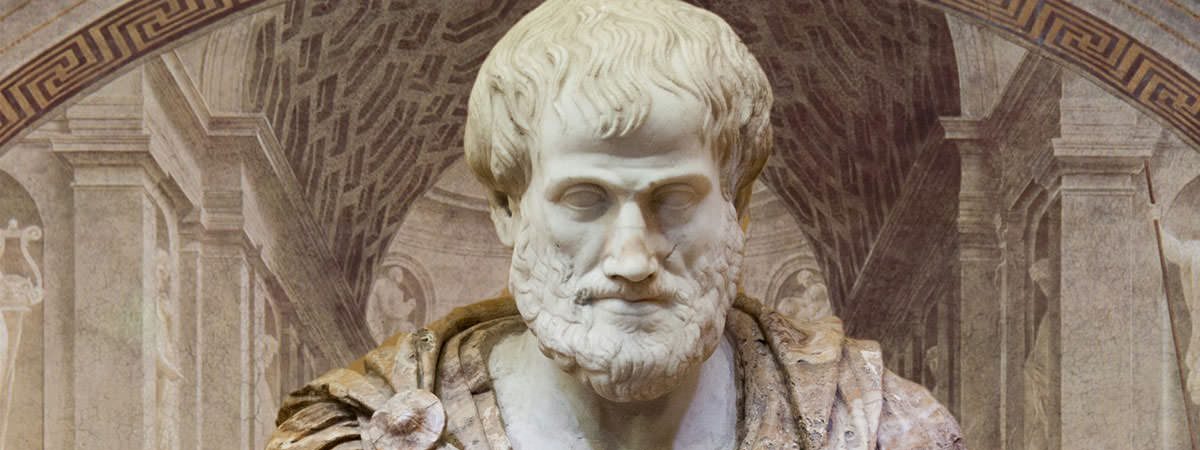Aristotle (384 BC – 322 BC) was an ancient Greek philosopher and scientist who, through his works in numerous fields, exerted an unparalleled influence in the west for almost two millennia. A friend King Philip II of Macedonia, Aristotle served as a tutor for Philip’s son, the future Alexander the Great. During his lifetime, Aristotle wrote extensively making noteworthy contributions to numerous fields including philosophy, biology, psychology, metaphysics, geology, politics and economics. In many of these numerous fields, the works of Aristotle had an immense influence making him one of the most influential people in the history of mankind. However, he also proposed many ridiculous theories and his work in several fields has been proved to be incorrect. Know all about Aristotle including his biography, his contributions to various fields, interesting facts about him and his best quotes.
BIOGRAPHY
Born in Stagira, Greece, Aristotle lost both his parents at the age of 13 and consequently the husband of his elder sister became his guardian. From the age of 17 to 37, Aristotle remained at the Academy of Plato in Athens where he first studied and then became a teacher. After this, Aristotle was invited by his childhood friend King Philip II of Macedonia to serve as a tutor for his son, the future Alexander the Great. After Alexander succeeded Philip II, Aristotle returned to Athens to found his own school, the Lyceum. Aristotle spent most of the remainder of his life working as a teacher, researcher and writer at the Lyceum. In 322 BC, he died in Chalcis at the age of 63 due to natural causes. Know more about the family, life, childhood, education, career, marriage and death of Aristotle through his biography.
Read More
CONTRIBUTIONS
Along with Plato, Aristotle is considered the “Father of Western Philosophy”. During his lifetime, he wrote extensively making noteworthy contributions to numerous fields including physical sciences such as astronomy, anatomy, embryology, geology, geography, meteorology, zoology and physics. In the field of philosophy, Aristotle wrote about ethics, aesthetics government, politics, metaphysics, economics, rhetoric, psychology and theology. He also studied fine arts making significant contributions to subjects such as literature, poetry, drama and rhetoric. In many of these numerous fields, the works of Aristotle had an immense influence for almost two millennia. Moreover, Aristotle continues to influence some of these fields even in the modern era. Know more about the contributions of Aristotle through his 10 major accomplishments.
Read More
INTERESTING FACTS
Due to his study of almost all subjects, Aristotle has been called the last person to know everything there was to know. However, he also proposed many ridiculous theories and his work in several fields has been proved to be incorrect. Due to his contributions in various fields, Aristotle’s name has been used to describe many terms. Moreover, a crater on the moon and the Aristotle Mountains in Antarctica are named after him. Aristotle was a misogynist and his views on females were used through the centuries to suppress women. Know more about Aristotle though these 10 interesting facts.
Read More
BEST QUOTATIONS
1. “We are what we repeatedly do. Excellence, then, is not an act, but a habit.”
2. “I count him braver who overcomes his desires than him who conquers his enemies; for the hardest victory is over self.”
3. “Whosoever is delighted in solitude is either a wild beast or a god.”
4. “It is the mark of an educated mind to be able to entertain a thought without accepting it.”
5. “The end of labor is to gain leisure.”
6. “Happiness depends upon ourselves.”
7. “The educated differ from the uneducated as much as the living differ from the dead.”
8. “Pleasure in the job puts perfection in the work.”
9. “The roots of education are bitter, but the fruit is sweet.”
10. “There is no great genius without some touch of madness.”




